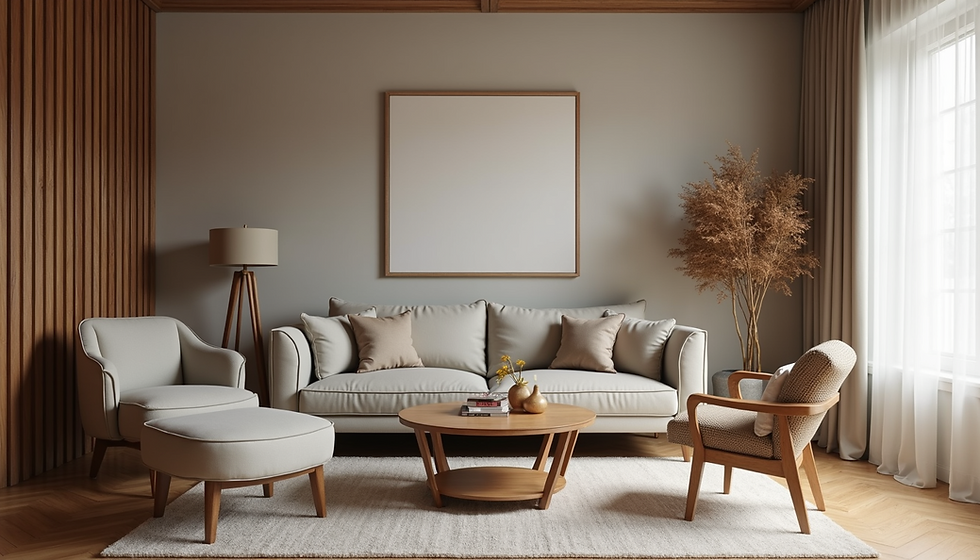Finding Balance and Harmony Through Expert Advice
- Jason Chan

- Sep 12, 2025
- 4 min read
Updated: Sep 27, 2025
In today’s fast-paced world, finding balance and harmony in our lives can feel like an elusive goal. Many people struggle to create environments that support their well-being, productivity, and peace of mind. Fortunately, expert advice can guide us toward achieving this balance by helping us understand how our surroundings influence our mental and emotional states. This blog post explores practical ways to cultivate balance and harmony, drawing on insights from various disciplines, including the ancient art of feng shui.
Understanding Balance and Harmony in Everyday Life
Balance and harmony are essential for a fulfilling life. Balance refers to the ability to manage different aspects of life—work, relationships, health, and leisure—without feeling overwhelmed. Harmony, on the other hand, is about creating a sense of peace and alignment within ourselves and our environment.
Prioritize tasks: Focus on what matters most and delegate or eliminate less important activities.
Create routines: Establish daily habits that promote well-being, such as regular exercise, meditation, or reading.
Design your space thoughtfully: Your environment can either support or hinder your sense of calm and focus.
For example, a cluttered workspace can increase stress and reduce productivity. By organizing your desk and surrounding area, you create a more harmonious setting that encourages concentration and creativity.

How Environment Influences Balance and Harmony
Our surroundings have a profound impact on our mood and energy levels. Colors, lighting, furniture arrangement, and even the presence of plants can affect how balanced and harmonious we feel.
Colors: Soft, natural colors like greens, blues, and earth tones tend to promote relaxation and balance.
Lighting: Natural light boosts mood and energy, while harsh artificial lighting can cause discomfort.
Furniture placement: Arranging furniture to allow easy movement and open spaces can reduce feelings of confinement and stress.
Nature elements: Incorporating plants or natural materials can bring a sense of calm and connection to the outdoors.
For instance, placing a comfortable chair near a window with natural light and a view of greenery can create a peaceful reading nook that supports mental balance.

What does a Feng Shui consultant do?
A feng shui consultant specializes in arranging spaces to optimize the flow of energy, or "chi," to promote health, prosperity, and well-being. They analyze the layout, orientation, and elements within a home or office to identify areas that may block positive energy or create imbalance.
Key tasks of a feng shui consultant include:
Assessing the space: Measuring and mapping the property to understand its energy dynamics.
Identifying problem areas: Spotting clutter, poor lighting, or furniture placement that disrupts energy flow.
Recommending adjustments: Suggesting changes such as repositioning furniture, adding mirrors, or introducing specific colors and elements.
Customizing solutions: Tailoring advice based on the client’s goals, such as improving relationships, career success, or health.
By working with a professional, you can receive personalized guidance that helps you create a balanced and harmonious environment. For those interested, exploring a trusted feng shui consultancy can be a valuable step toward transforming your space and life.

Practical Tips to Create Balance and Harmony at Home
You don’t need to be an expert to start improving your environment. Here are some actionable recommendations to bring more balance and harmony into your living space:
Declutter regularly: Remove items you no longer use or need. A clutter-free space reduces stress and invites positive energy.
Use natural materials: Incorporate wood, stone, or cotton to create a warm and grounded atmosphere.
Balance the five elements: In feng shui, the five elements—wood, fire, earth, metal, and water—should be balanced. For example, add a small water fountain (water element) near wooden furniture (wood element) to create harmony.
Create zones: Designate specific areas for work, relaxation, and socializing to help your mind switch between activities smoothly.
Incorporate soft lighting: Use lamps and candles to create a cozy ambiance in the evening.
By making these small changes, you can significantly improve how your space supports your well-being.
Embracing Balance and Harmony in Your Daily Routine
Balance and harmony extend beyond physical spaces into how you manage your time and energy. Here are some strategies to integrate into your daily life:
Mindful breaks: Take short pauses during work to stretch, breathe deeply, or meditate.
Set boundaries: Learn to say no to commitments that drain your energy or do not align with your priorities.
Practice gratitude: Reflect on positive aspects of your day to cultivate a harmonious mindset.
Stay active: Regular physical activity helps balance your body and mind.
Connect with nature: Spend time outdoors to recharge and find inner peace.
These habits help maintain a balanced lifestyle, reducing stress and enhancing overall happiness.
Finding balance and harmony is a continuous journey that benefits greatly from expert advice and practical actions. Whether through thoughtful space design, lifestyle adjustments, or professional guidance like a feng shui consultancy, you can create an environment and routine that nurture your well-being. Start small, stay consistent, and watch how your life transforms into a more balanced and harmonious experience.




Comments